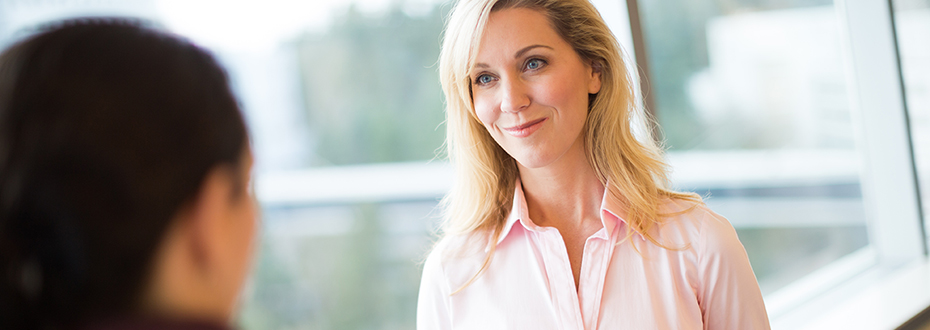Social and Emotional Side Effects of Cancer

It's not uncommon for cancer patients to face a mix of emotions and adjustment issues. At the OHSU Knight Cancer Institute, we offer teams of specialists who can help. They include experts in survivorship, social work, rehabilitation, alternative medicine, nutrition and other specialties. We also offer classes and support groups.
See also:
Anxiety: Anxiety affects about three in 10 people with cancer. Check out our resources for coping with anxiety.
Body image and self-esteem: You may be adjusting to scars, weight changes, the loss of a breast or other body part, or other changes to your body. Some parts of your body might not work the way they used to. This can leave you feeling self-conscious about going out or about being intimate with a partner. Allow yourself to mourn what you've lost. Support groups, counseling, exercise and a proper diet can also help.
Depression: Depression affects about two in 10 people with cancer. If you feel sadness that never seems to fade or no longer enjoy favorite activities, it's important to talk with your provider about getting help. Check out our resources for coping with depression.
Fear that cancer will return: It's normal to worry that every ache or sniffle could signal cancer's return, especially in the year after treatment. Medical appointments, anniversaries and other things can trigger or intensify these fears. Accepting this worry, managing stress and focusing on things you can control, such as your follow-up appointments, can help.
Finding meaning: Over time, many patients find meaning and new beginnings in life after cancer. Some feel stronger or more capable. Some are inspired to try new things, and some find they savor each day more. New insights can develop slowly over years, however, and may not appear right away.
Grief: It's common, even expected, to feel a sense of loss for your old life. Yet many patients are surprised by the intensity of emotions surrounding the need to adjust to a new normal. Give yourself permission and time to feel sad about your losses. Talk with your provider if these feelings become overwhelming.
Guilt: Some people feel guilty about surviving, knowing that other patients didn't. Some worry that they burdened caregivers and family members. Counseling or a support group can offer the chance to talk through your feelings.
Loneliness: A sense of isolation is common after cancer. You might feel like others can't truly understand. Friends may have retreated. You might find emotional support in counseling, a support group or faith community.
Relationships: Cancer can strain relationships with friends, family and co-workers. People might treat you differently or not know what to say. People you expected to stand by you may have backed away, and people you didn't count on may have become closer.
Spirituality: After cancer treatment, you might find yourself with a new approach to faith. Some survivors, finding a new connection and fellowship, renew spiritual practices. Others find themselves questioning their faith.
Stress: The changes that come with cancer, treatment and survivorship can increase anxiety. You may face the return of problems that you set aside during treatment. Exercise, talking with others, relaxation techniques, meditation and creative activities can help.
Work: After cancer, re-entering social and professional life can be challenging. Many fear an increased risk of infection, lack of energy, and anxiety about work performance. At the same time, work can bring a sense of normalcy. Open communication with colleagues can help you get past feelings of uncertainty, but use your judgment about how much to share about your cancer and treatment.
Learn more
- Knight Cancer Institute survivorship programs
- Patient and family resources
- Find a cancer diagnosis
- Coping with Cancer, National Cancer Institute
- Survivorship: During and After Treatment, American Cancer Society
- Survivorship, Cancer.Net, American Society of Clinical Oncology
- "Facing Forward: Life After Cancer Treatment," downloadable booklet, National Cancer Institute